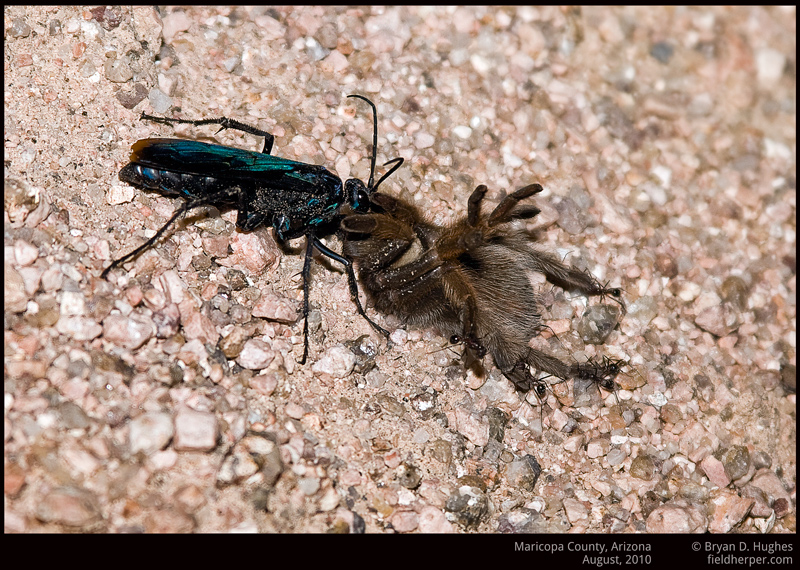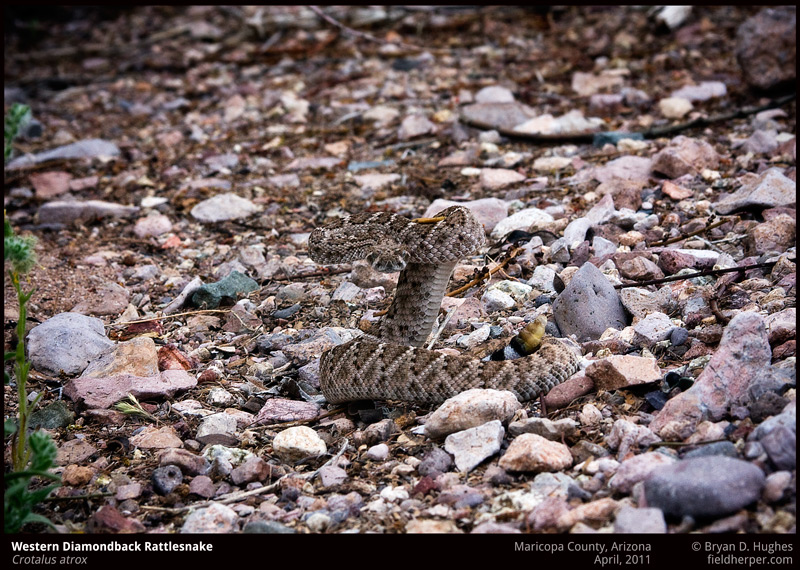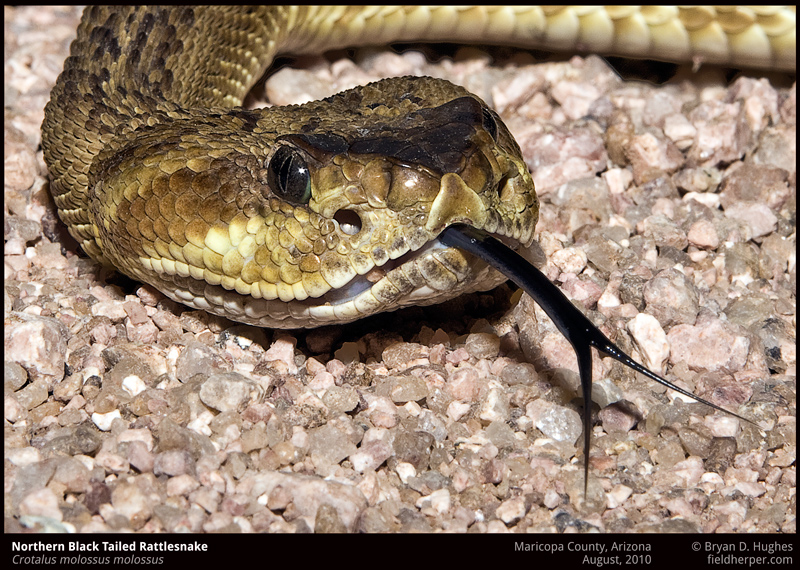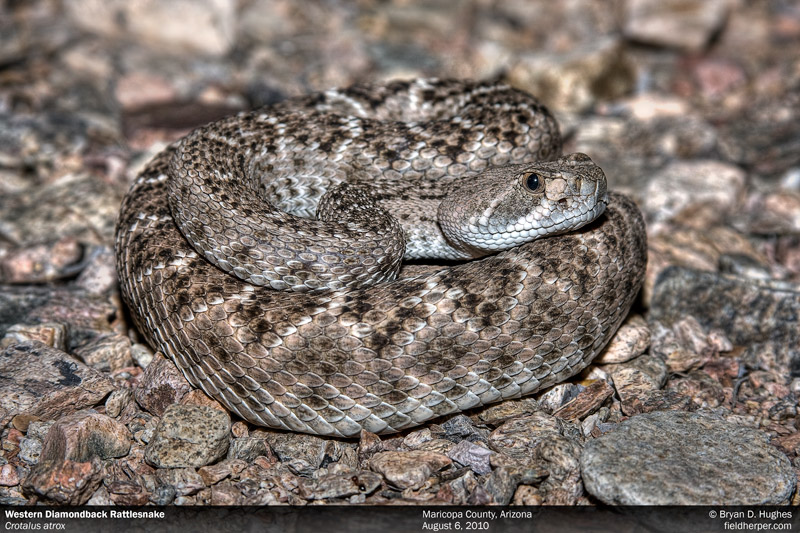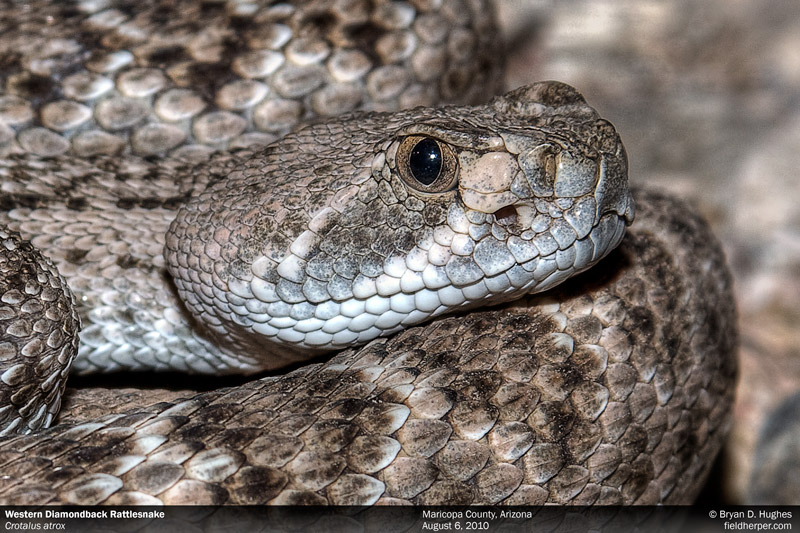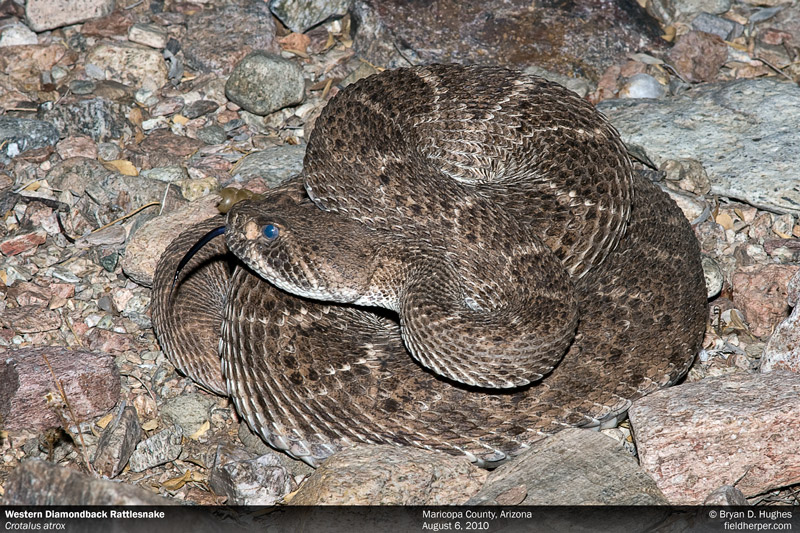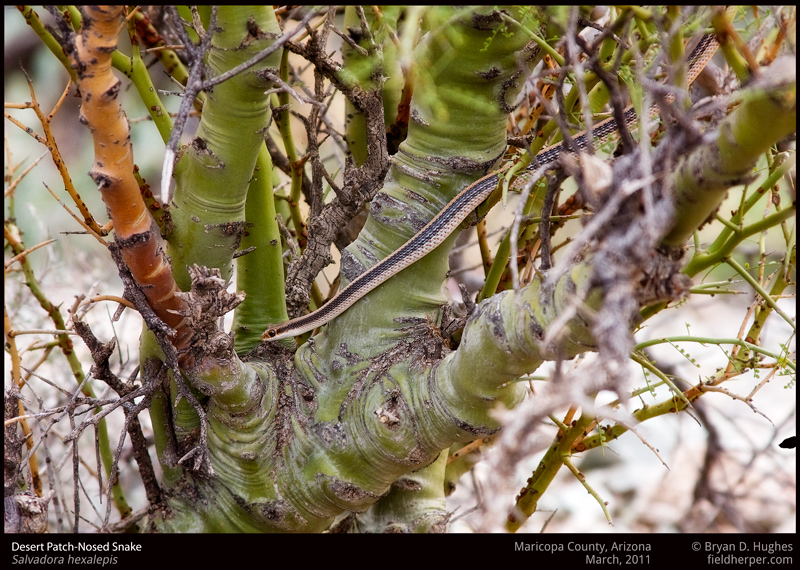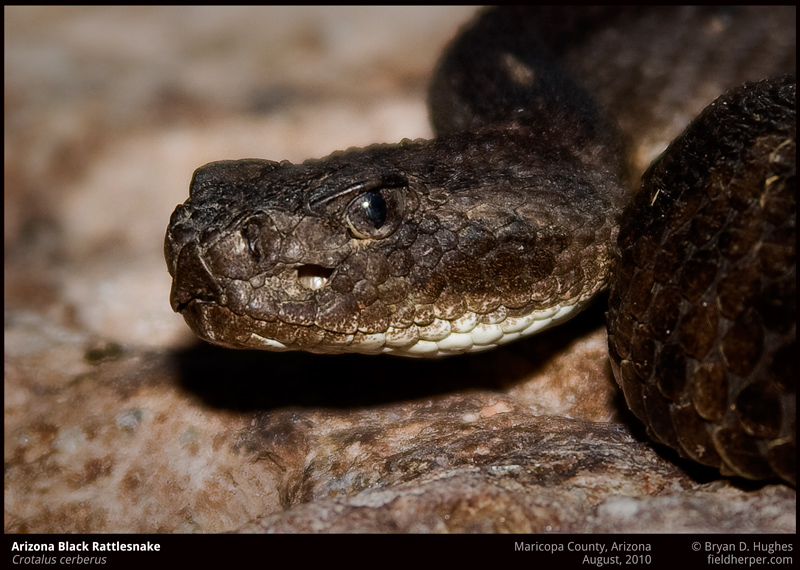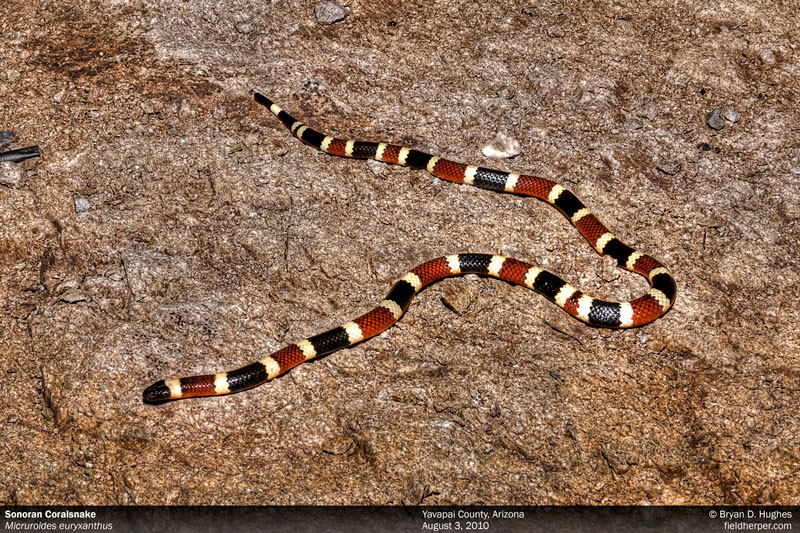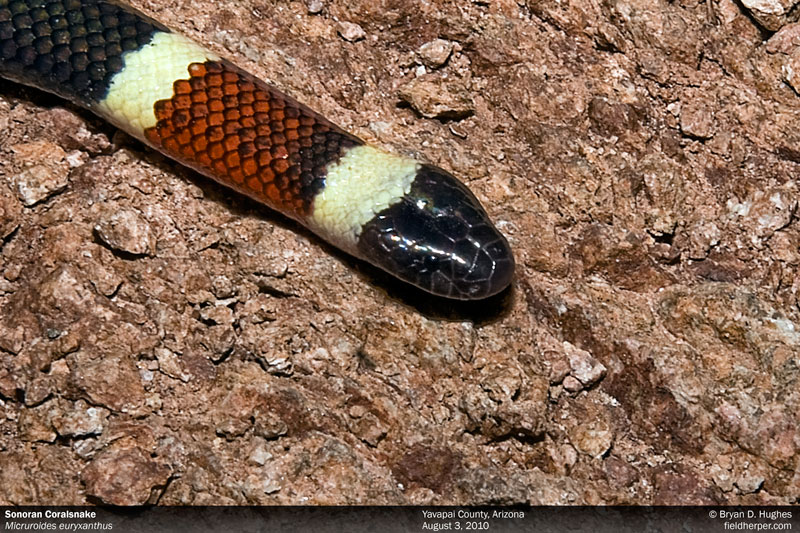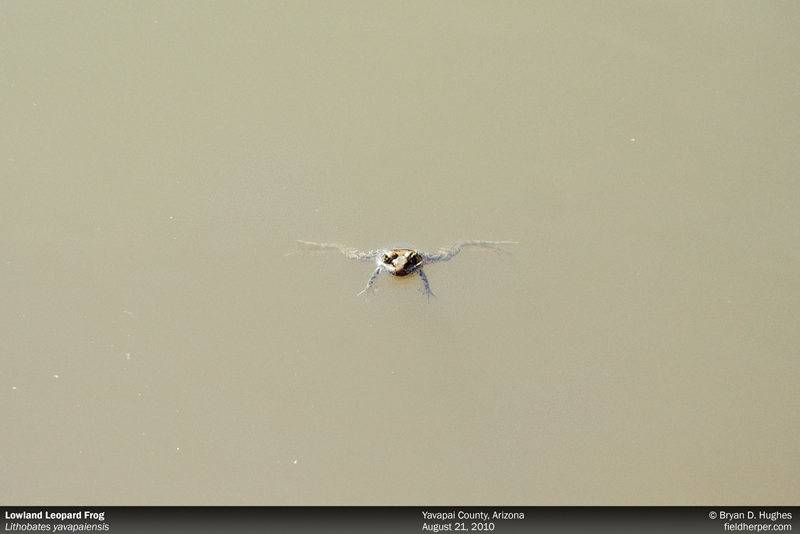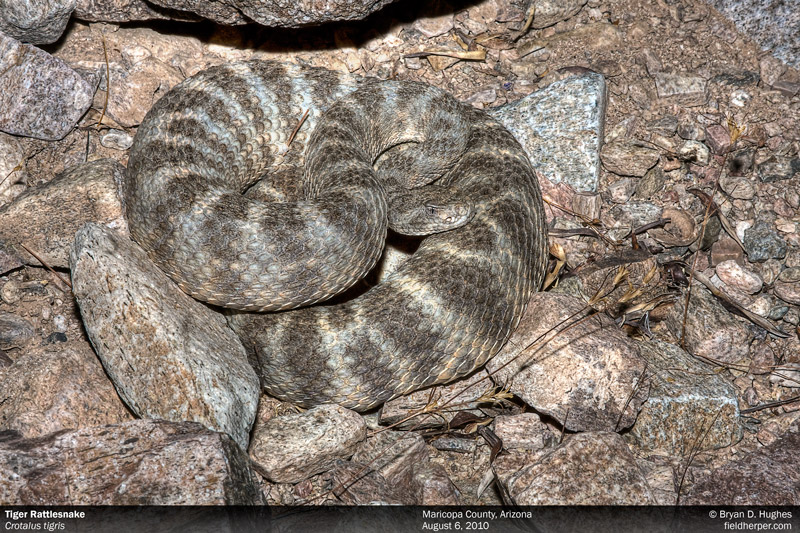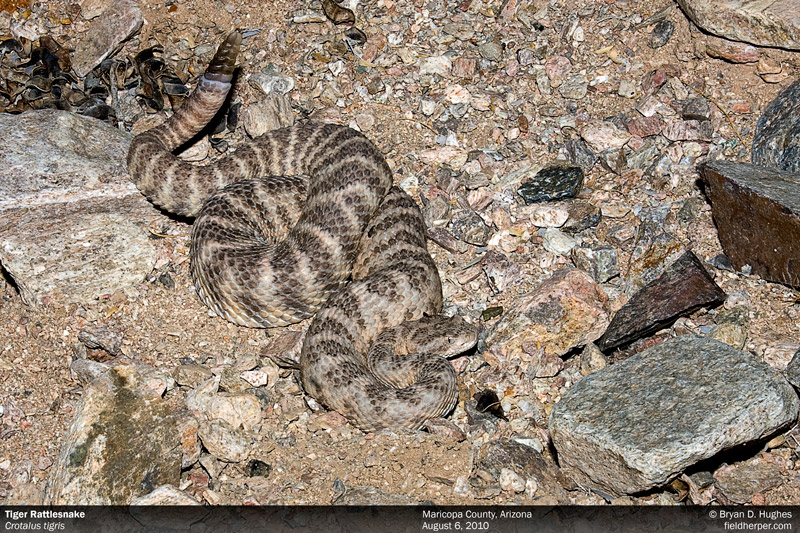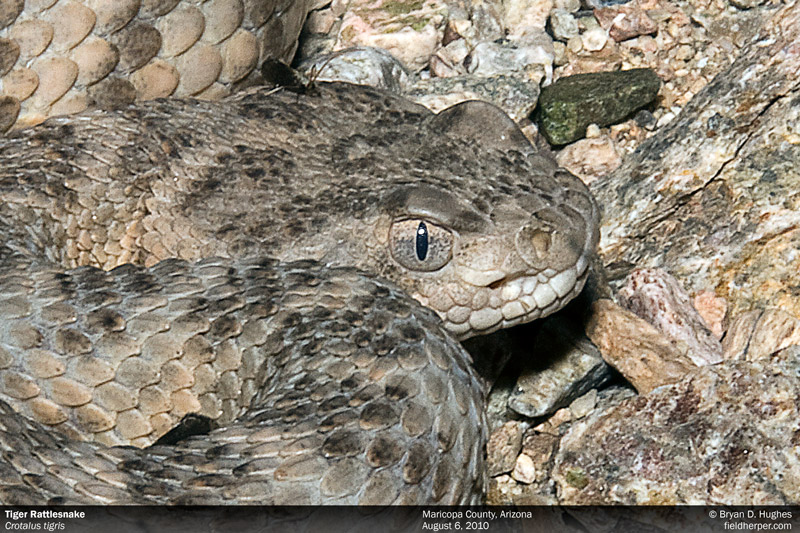Here’s the smallest Blacktailed Rattlesnake I’ve ever seen … I see plenty of these guys, so I’m not quite sure why I never see babies. Cute little guy.
Bad Day to Be a Tarantula
Baby Diamondback Release
Here’s a little, baby Western Diamondback Rattlesnake that we released to a new home, captured by my rattlesnake relocation service. He’s just a little guy, but as you can see, he knows how to take care of himself.
Baby White Specks, Incoming
Here’s a photo of a female speckled rattlesnake that I have in my office … she’s ridiculously beautiful as you can see. She’s also recently been quite friendly with the big male of the same variety and coloration that lives with her, so friendly in fact that I expect some babies in a few months. Exciting stuff!
Don’t Play In The Road
This is a closeup of a Blacktailed Rattlesnake, Crotalus molossus, from the Superstition mountains that had been clipped by a car. He had some problems with the mouth, as you can see in the photo, but may be ok.
I spend so much time looking for these guys that it’s amazing that people don’t see a bright yellow, 3.5′ animal as big around as a coke can laying in the middle of the road. I realize that quite often hitting a rattlesnake is the intentional act of the cowardly miniscule manhood crowd of the American Southwest, but sometimes it’s not. Birders are notorious for it … not that they mean to, but they’re looking UP and just miss whatever’s on the road. In the South East, there have been plenty of times I’m caught behind a binocular-faced duo in an economy car leaving writhing, dying reptiles in their wake. Just last May I found a nearly 7′ gophersnake crossing the road … just massive, brightly colored … impossible to miss. I stopped the car before they ran over it, and they said they were glad I did because they didn’t see it at all. Can’t blame them though … when I’m out looking for snakes I can’t say I’m looking in the trees.
Hope this guy is ok.
A Gravid, Young Diamondback
We found this little lady one night in a wash, full of developing babies. It was a good candidate for some light HDR, being one of the many dozens of diamondbacks I’ve found and photographed in the year.
One more of the little lady …
Here’s another one found a ways off, a male, with milky pre-shed eyes.
First Wild Snake of 2011
It’s not a rattlesnake, but I’m kind of glad … the first snake of the year for me has been a Western Diamondback for the last several years, so at least this is something different AND something new for me. This is a patch-nosed snake, a pretty common sight in the Spring daytime … but never before IN A TREE. Not sure what this little guy was doing up there, but it took some work to get a photo through the branches without disturbing him. I personally really like how this came out against the bright green treebark.
Sonoran Coralsnake: The Only One I Saw in 2010
Cruising around with a few friends in August, we lucked out. We had two vehicles making passes on a stretch of road looking for rattlesnakes, and on the way back I saw that the other car had stopped and they were photographing something. Turns out they had caught a nightsnake and were setting it up for some shots, and I wanted some too … so I pulled a U-turn to park and “HOLY SHIT A CORALSNAKE”! A few frantic seconds later and we caught him.
Very beautiful, very venomous, not too dangerous; the Sonoran Coralsnake, Micruroides euryxanthus:
Closer, you can see those tiny venom glands slightly swelling behind the eyes. It takes an act of extreme stupidity to actually get envenomated by these guys, who tend to fart as a primary defensive move. The Chihuahuan Hooknosed Snake will also fart in defense, and I have to say that their performance is more impressive than these little corals. The ‘cloacal popping’, as it is more nicely put, sounds like little armpit farts in the hooknosed snake, while the coral sounds more like someone walking across a freshly waxed floor in rubber shoes.
These are one of the very few Elapid species found in the United States. The Elapidae family is better known for its inclusion of Cobras, Sea Snakes, and Mambas, with whom these little coralsnakes have neurtoxic venom in common.
Anyone that’s tried to catch one of these, too, knows just how disorienting the pattern can be. They seem to move in an exaggerated S-pattern when trying to escape and will more or less disappear in front of your eyes, like a color wheel given a spin.
It was the only one I saw in 2010, and I really hope 2011 is better.
Mcdowell Mountains Tiger Rattlesnake
Here’s a nice bluish tiger rattlesnake from the Mountains near Fountain Hills found with some friends one night. Look at that funny little head, haha. I have one of these that lives in an enclosure with a few speckled rattlesnakes, and the body-girth to head-size ratio between them puts their head pretty much at half the size of a normal rattlesnake head.
Also, while I’m thinking about it … the tiger rattlesnake was the very first species of rattlesnake I ever saw in Arizona, seen dead on a South Mountain trailside with my friend. It had been killed by a hiker, and the only reason I know it was a tiger at the time (this is before I really thought too much about rattlesnakes every day) because thinking back, my thought was “wow, what a weird little head”. Still little, still weird, and I still love seeing these guys out and about.
Here’s another one from just down the way of the above fellow. We would have walked right past him if he wasn’t buzzing up the side of the hill at the sight of us.

